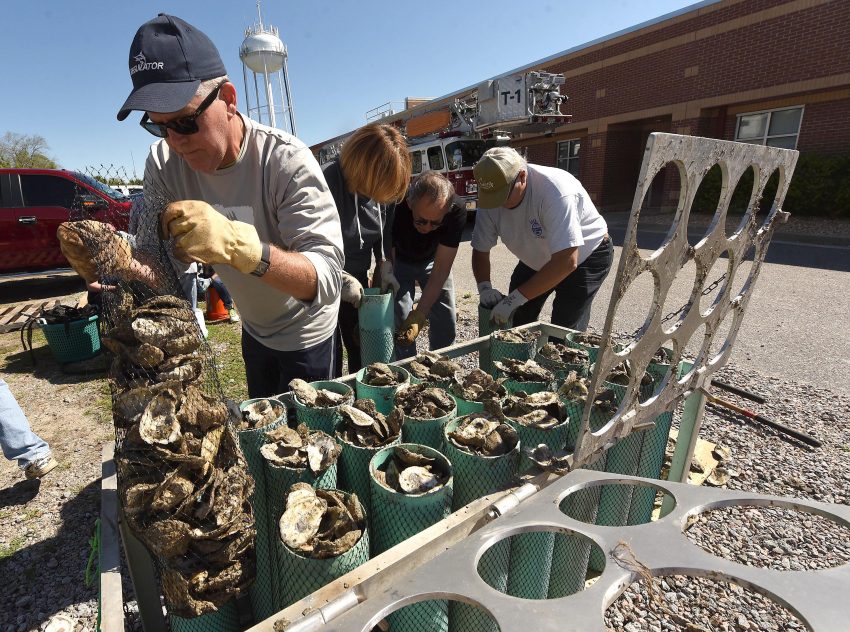
Joe Donahue picks up another bag of oysters. Photo by Ken Blevins, Star News.
This story has been updated with additional numbers from the April 19 bagging event in Wilmington.
A total of 87 volunteers worked with the North Carolina Coastal Federation’s Wrightsville Beach staff for two oyster bagging events in April.
The bags of recycled oyster shells and gravel granite will be used on a future living shoreline at the town’s waterfront park, which will protect the shoreline from erosion while also creating valuable habitat.
The first event was on April 19 at Capt’n Bill’s Backyard Grill in Wilmington. Twenty volunteers from PRA Health Sciences helped bag around 400 bags using the loose shell that were stored in the parking lot.
The next week, 67 volunteers joined federation and Town of Sunset Beach staff on April 25 in Sunset Beach to bag recycled oyster shells and gravel granite.
The event was held at Sunset Beach Fire Department Station One, right next to the park. Volunteers from the community, Bird Island Preservation Society, Sunset Beach Turtle Watch Program and the Old Bridge Preservation Society filled a total of 384 bags of gravel granite and 768 bags of recycled oyster shells.
“In the late summer and early fall, the federation plans to build about 150 linear feet of living shoreline at the park. Using volunteers for part of the shoreline construction helps cut costs, increases awareness of living shorelines — and in public spaces like the park, it also helps give the community a sense of stewardship of the living shoreline.” said Jessica Gray, coastal outreach associate for the federation. “We had a great turnout at this event, and it’s our hope that these volunteers will come out again for more volunteer events and continue to be active stewards of the coast.”
Oyster reefs are often a component of living shorelines — not only are they effective at controlling erosion, they also encourage new oyster growth. Because an adult oyster can filter up to 50 gallons of water a day, this erosion control technique leads to cleaner waterways. The federation aims to restore 50 acres of oyster habitat coastwide by 2020 as part of its 50 Million Oyster Initiative.
This project is funded by a Coastal Ecosystem Resiliency Grant from the National Oceanic and Atmospheric Administration, which is a multi-year, $500,000 grant to fund living shoreline projects along the entire North Carolina coast. More information about living shorelines can be found at LivingShorelinesAcademy.org.
Check out these photos of the Sunset Beach bagging event from Star News.
